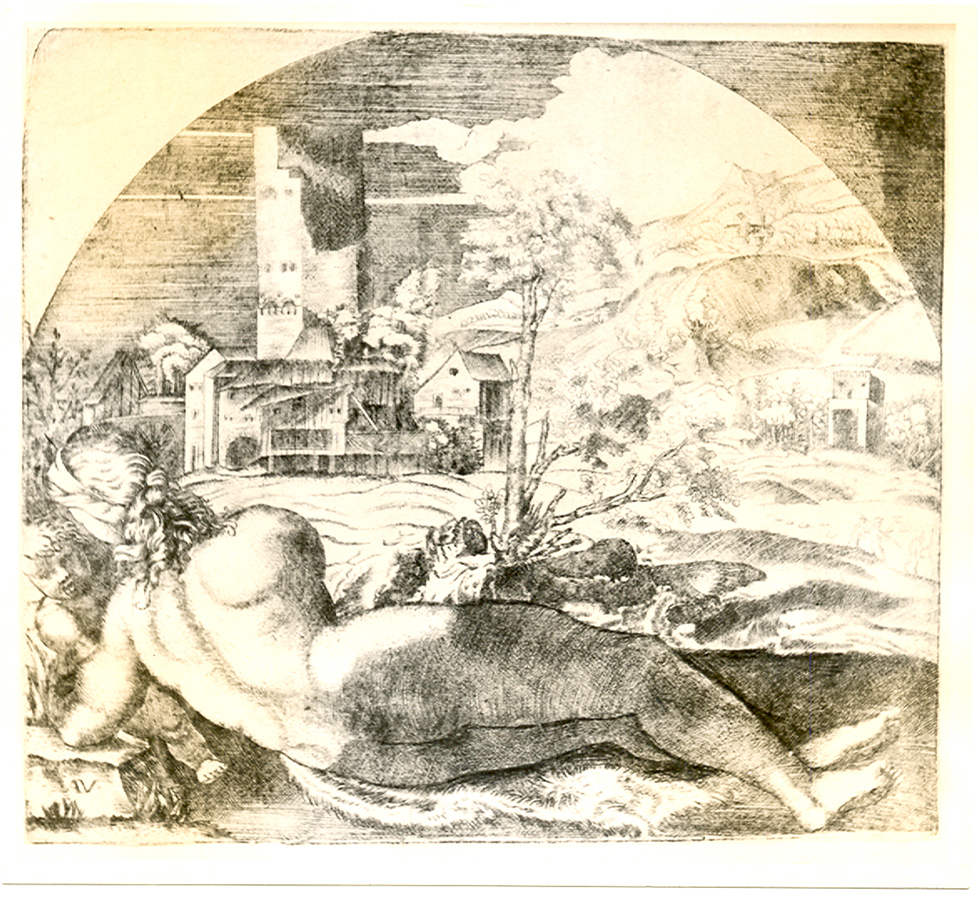金星の庭園に戻ろう(3)
ダービー・コステロ著 咲耶まゆみ訳 By Darby Costello Translated by Mayumi Sakuya
English text to follow.
アフロディーテはまた、文明化された衝動とも関連付けられた。生の衝動や感情が芸術になったとき、彼女もそこにいた。彼女は生殖的であるだけではなく、創造的本能の喜びの中にもいた。創造(creation)の楽しみ・娯楽(re-creation)だ。
真のギリシャ流のやり方で、アフロディーテの世界は、何世紀もわたって詩や演劇で劇的に表現されてきた。ホメーロス(紀元前8世紀末の吟遊詩人)、 ソポクレス、アイスキュロス、エウリーピデス(紀元前497/6年406/5年の古代ギリシャ3大悲劇詩人)から、私たちは女神の酷く不快な側面を知る。女神が称賛を得られないときは、ひどいことをしかねないということを耳にする。そして愛が誤った方向に行くと、いかに悲惨なことになるかも知る。プラトンからは、私たちは美や喜びが色褪せる時に苦しんでしまうがために、物質的な美しさに対する切望を、永遠の美しさに対する切望に変容させてしまうことがあることを学ぶ。のちに、私たちは、ローマの詩人たち、特にホラティウスとオウィディウスからは、対人関係からビーナスが消えるときに生じる、辛い悲しみの痛みについて学ぶ。愛することと、喪失するとは、この女神の領域の本質的な部分のようだ。
私たちの現代アストロロジーの祖先のアストロロジーが体系化された2千年前、ビーナスは初期の神話の神々の特徴は保持していたものの、魔法の力は完全に失われていた。ビーナスは「ベネフィック(吉星)」ではあるが、「グレーター・ベネフィック(大吉星)」の木星に比べると、「レッサー・ベネフィック(小吉星)」だった。一人で統治している時は、善の偉大な力が与えられたが、愛、うわべ上の事柄、喜びよりもしょっちゅう引き起こされるトラブルのみを支配するまでに力が軽減されることが多かった。
これが、何世紀にわたって私たちの愛、美、歓喜に対する姿勢に影響を与えたのだろうか。中世期とその後のイタリアのルネッサンスに、一時期パワフルに返り咲いたことはあったが、今もなお、ビーナスは彼女の庭園で身を潜めているように思われる。女神をまた庭園の外へおびき出すことを願う人たちがいたらどんなに素晴らしいだろう!私たちの人生やアストロロジーの中心に、彼女の神秘的な美をもたらすことができるように金星ビーナスを称えることが出来たらどんなに素晴らしいだろう。
私たち一人ひとりは、金星の贈り物が生涯ずっと続くような増殖の方法を持つ。でも、本当にそうしたいだろうか。また、彼女の贈り物に伴う、喪失のようなものに耐える力をどのように培えばよいだろうか。私たちは、もはや星の神々を崇拝していない。しかし、アストロロジャーとしては、それぞれの天体が象徴する特質に対して敬意を払うべきだ。
金星を称えるとは、何を意味するのだろう。それは、人生の儚い美しさを称えるということ。日の出や日の入り。切り花。失恋。通り過ぎていく美しいものたち。
女神のギフトを完全に受け取るということは、愛するものが消えていくときに手放すことを学ぶということ。私たちの周りにいる人々や、世界に存在する美しさを認められるようになるということ。喪失の体験と徹底的に向き合うということ。そして、もう一度花が咲く次の季節を待てるようになるということ。
私たちは、コントロール不能の文化にいるようだ。多くの人々が個人の力を超えた勢力の被害者になってしまったと思っている。そして、かつては私たちの人生、さらには、私たちの支配者の人生や意志決定さえをも統治していると信じられていた神々や女神たちを称えなくなり、無力さを感じている。
20世紀に私たちは自分の人生に対して自主性を持っていると信じるように育てられた。そして今、その信念を幾分失いつつあるのかもしれない。1989年の土星・天王星・海王星のコンジャンクションから、新しい社会的元型が誕生したが、新世界はまだ形成されていない。私たちの多くは、あらゆる変遷に伴うカオスと混乱の中に沈下している。これは地球上の文化全てが巻き込まれている。アストロロジャーとして、この混沌とした、文化の変遷期の中で、クライアントと私たち自身にも、理解と知恵をもたらせることを願う。
C.G.ユングはこのように言っている。
神に定着していない個人は、自分の力で世間 の 物質的・道徳的な甘言に抵抗することができない。このため、個人は、内面の、超世的経験の証が必要になる。 その体験だけで、大衆に埋没することから身を守ることができる。
自分を見失う方法は沢山ある。自分をまた見つける方法も沢山ある。永遠のもの、私たちの中心にある神聖な存在とのつながりを経験する方法も沢山ある。見つけるための旅に出るだけの価値を持つ、創造の美と喜びに戻してくれる、「内面の、超世的経験の証」を探す方法も沢山ある。
アストロロジャーにとっては、ビーナスを取り戻すことも一つの方法だ。自分のネータルチャートの金星の配置・プログレッション・トランジットを見ていく中で、人生のどこで、どのように、そしてどんな具体的な状況下で、ビーナスが現れるかを考えてみる。自分の受け取る力を知り、人生の善・真理・美によって秘密の庭園から女神を連れ出して、自分の庭園に迎え入れるのだ。
アストロロジャーである私たちは、個人のチャートの金星を見て、女神を秘密の庭園から出して、魂の心象世界へ導く方法を見つけることができる。庭園に入る自分だけの方法を見つけるように。自分の金星を見つめることで、この混乱と不安の中、人生の美と愛に喜びを抱く力を持つ魂の守護者である女神と、もっと時間を共に出来るかもしれない。その美しさは、素早く通り過ぎていきながら、必ず戻ってくる。永遠でありながら、必ず消えていく。すでに消えてしまったものを手放すことを学んだ後に、再び戻ってくる。このようなことが出来る人は、優美な何かをもたらしてくれる。その人自身にも、そして周囲の人たちにも優雅さをもたらす:地上に大きな喜びが訪れる。
儚く、尊い人生において、それ以上に素晴らしいものがあるだろうか。
以上
Recovering the Garden of Venus (3)
Aphrodite was also associated with the civilising impulse.*9 When raw impulses and emotions were fashioned into art, she was there too. She is not only procreative, but in the joy of the creative instinct too; the re-creation of creation.
In true Greek fashion, her world was dramatized in poetry and theatre for centuries. From the poets, Homer, Sophocles, Aeschylus and Euripedes, we learn of her terrible side. We hear of her terrible capacty for revenge when she is not honoured and we recognize how horrible it is when love goes wrong. Because we suffer so when beauty and joy fade, from Plato we learn how it may be possible to turn the longing for the physically beautiful towards the longing for eternal beauty. Later, with the Roman poets, particularly Horace and Ovid, we learn of the pain of the terrible sadness that arises when Venus disappears from a relationship. Loving and loss seem to be an intrinsic part of her domain.
Two thousand years ago, when the astrology that is the ancestor of our astrology today was formulated, Venus kept the characteristics of the earlier mythological deities, but she lost the full magic of her power. She was ‘benefic,’ but the ‘lesser benefic’ to Jupiter, who was the ‘greater benefic.’ Sometimes, when ruling alone, she was given great power for good, but often she was reduced to ruling over love and cosmetics and causing more trouble than delight most of the time.
We might wonder has this has influenced our attitudes over the centuries to love, beauty and joy. Venus does now seem to be hiding away in her garden, though she did emerge powerfully again for a time in the medieval period and then in the Italian Renaissance. How wonderful if those of us who wished to could lure her out again! How wonderful if we could honour her in such a way that she could bring her wondrous beauty right into the heart of our lives as well as into our astrology.
We each have ways of cultiving her gifts so they may last our lifetime. But do we want to? And, how can we develop the capacity to bear the sort of loss that goes along with her gifts? We no longer worship the star deities, but as astrologers we must honour the dimensions that each planet represents.
What does it mean to honour Venus? It means to honour the transient beauty in life; the sunrise and sunset; the cut flowers; the lost love, the beauty of things as they pass away. To receive her gifts fully, it means learning how to let go of the things we love as they disappear. To be receptive to the beauty in other people and in the world around us, it means facing the losses we experience full on, and learning how to wait for another season of another blooming.
We seem to be in a culture spiralling out of control. Many of us feel like victims of forces beyond our individual power and, as we no longer honour the gods and goddesses we once believed governed our lives – even the lives and decisions of our rulers – we feel helpless. We were brought up in the 20th century to believe we had autonomy over our own lives, and now we may be suffering some loss of that belief. From the Saturn-Uranus-Neptune conjunction in 1989, a new social archetype came into being, a new world as yet unformed. Many of us are foundering in the chaos and confusion that accompanies all transitions – and this one involves all cultures on the earth. As astrologers we wish to bring understanding and wisdom to our clients and to ourselves in this chaotic, culturally transitional time.
C.G. Jung has this to say:
The individual who is not anchored in God can offer no resistance on his
own resources to the physical and moral blandishments of the world. For
this he needs the evidence of inner, transcendent experience which alone
can protect him from the otherwise inevitable submersion in the mass.*10
There are many ways to lose oneself and many ways to find oneself again. There are many ways to experience a connection with that which is eternal: a divine presence at our core. There are many ways to find ‘evidence of inner, transcendent experience’ which can return us to the beauty and joy of creation – that which makes it worth the journey. For astrologers, recovering Venus is one of the ways. Contemplating where and how and under what specific conditions Venus appears in our lives comes from contemplating her position in our natal chart, and by progression and transit. Understanding our individual capacity to receive, to allow the good the true and the beautiful in life brings her out of her hidden garden and into our own. As astrologers we can look at Venus in our individual charts with the goal of seeking ways to bring her out of her hidden garden, into the soul’s imaginal world, so that we each may find our own unique access to that garden. Through contemplating our Venus, in the midst of chaos and anxiety, we might spend more time with her, the guardian of our soul’s capacity for joy in beauty and love in our own lives; the beauty that is fleeting but ever recurring, eternal but ever disappearing, returning again once we have learned how to lose that which is already gone. Those of us who do this bring something graceful – bring grace – to themselves and to those around them: great joy in the land. Is there anything more wonderful in our brief and precious lives?
End.
*9 For Aphrodite’s civilising influence see Paris, Meditations, pp. 16-19; and Friederich, Aphrodite, pp. 90-91.
*10 Jung, C.G., CW 10: The Undiscovered Self, p 258.
BIBLIOGRAPHY
Empedocles, ‘Presocratic Fragments and Testimonials’ © James Fieser. This text file is adapted from passages in John Burnet’s Early Greek Philosophy, 3rd edition, (London: A & C Black Ltd., 1920 [1892]), at kr.geocities.com/hyun_sinnayo/presoc.htm#Empedocles
Friedrich, Paul, The Meaning of Aphrodite (Chicago: The University of Chicago Press, 1978).
Hesiod, The Homeric Hymns and Homerica: The Theogony, II, 961, at http://omacl.org/Hesiod/theogony.html
Kramer, Samuel Noah and Diane Wolkstein’s, Inanna, Queen of Heaven and Earth: Her Stories and Hymns from Sumer, ‘The Lady of the Evening’ (New York: Harper and Rowe, 1983), p. 101.
Lewis, C.S., The Allegory of Love: A Study in Medieval Tradition (Oxford: Oxford University Press. [1936] 1986).
Otto, Walter, F., Aphrodite, transl. Moses Hadas, (New York: Pantheon Books, Ltd., 1954).
Paris, Ginette, Pagan Meditations, translated from the French by Gwendolyn Moore, (Dallas, Texas: Spring Publications, Inc., 1986).
関連記事
Submit your review | |


